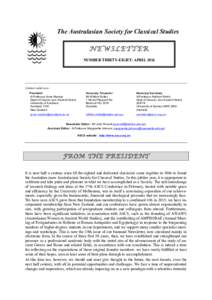<--- Back to Details
| First Page | Document Content | |
|---|---|---|
 Date: 2016-05-08 02:42:49Elizabeth Minchin Hellenists Homeric scholarship Australian National University Classics Humanities |
Add to Reading List |
| First Page | Document Content | |
|---|---|---|
 Date: 2016-05-08 02:42:49Elizabeth Minchin Hellenists Homeric scholarship Australian National University Classics Humanities |
Add to Reading List |